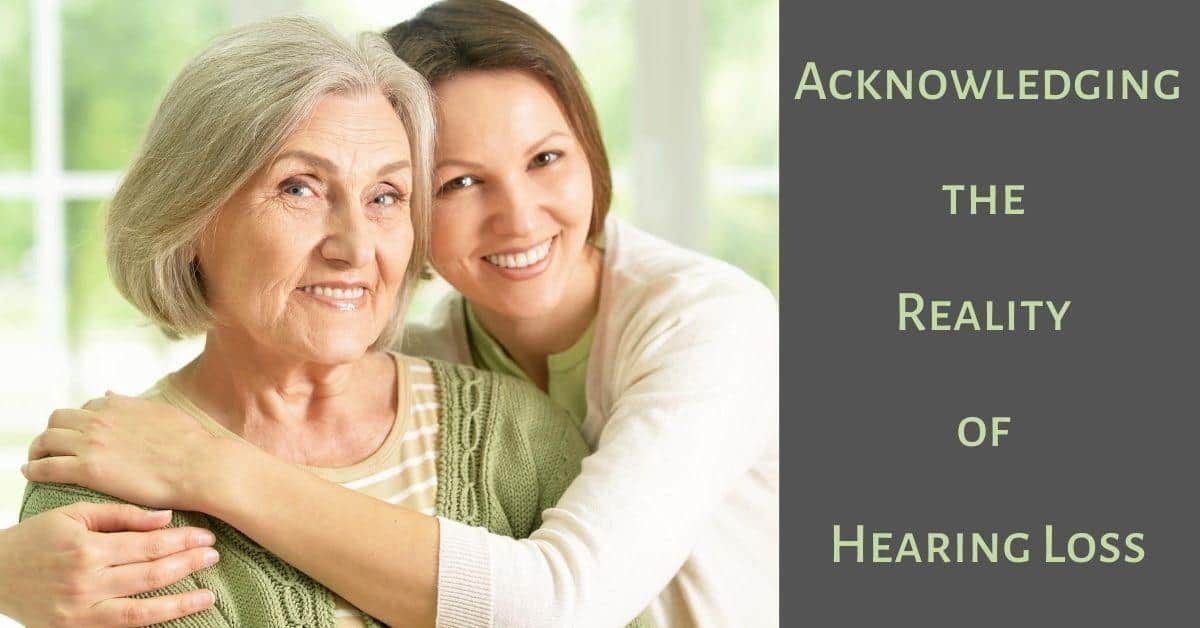
- Understanding the Different Types of Assistive Listening Technology - April 15, 2025
- Emergencies That Can Occur With Hearing Aids - April 5, 2025
- When to Consider a Second Opinion for Hearing Health - March 25, 2025
With about 20% of Americans suffering from life-affecting hearing loss, we shouldn’t be surprised when it happens to us. In fact, by the time a person reaches 100 years old, the likelihood they’ll have hearing loss is nearly 100%. We’re living longer, and that means more of us will live long enough to lose our hearing.
Still, many people have a hard time adjusting to the idea that they need assistance with their hearing. On average, it takes a person seven years from the time they notice hearing loss to the time they seek treatment for it. That’s a lot of years of straining to hear, increased fatigue, difficulty in public spaces, and background anxiety. Accepting that hearing loss is our reality allows us to move forward and deal with it proactively, and that’s better for us and for the people we love.
It’s Not Your Fault
While noise-induced hearing loss is real and some of us do lose our hearing as a result of loud music, machinery, or long-term exposure to moderate loudness levels, even the likelihood that a person will have permanent hearing loss from exposure to loud sound has a genetic component. This is not to say that we shouldn’t wear earplugs around unsafe noise levels- we absolutely should. But while protecting our hearing through the years will help protect us from noise-induced hearing loss, it will not exempt us from age-related hearing loss, and those rock concerts you went to in your 20s caused immediate hearing loss, if they caused any. If you’re having trouble hearing now, it’s not because of those loud sounds from a long time ago.
The point is, when we “beat ourselves up” over what we could have done or shouldn’t have done, we’re thinking about an unchangeable past. If hearing loss is your current reality, you’re not alone. There are steps you can take now to try to limit further hearing loss while giving yourself the closest thing to normal hearing that might be available to you, depending on the severity of your hearing loss.
A New Diet
Current research shows that anti-inflammatory diets like AMED (Alternate Mediterranean) and DASH (Dietary Approaches to Stop Hypertension) can significantly slow the onset of age-related hearing loss, and may be able to slow its progress once adopted. There’s also new evidence that faster-than-normal progress of age-related hearing loss can indicate an underlying cardiovascular disease. An anti-inflammatory diet not only helps your ears, but your cardiovascular system, as well.
If you are not sure whether your hearing loss is progressing at a “normal” pace or a faster one, schedule a hearing test. Regular consultations with an audiologist about the state of your hearing is part of effectively dealing with your hearing loss, and it is essential to getting the help you need.
Smoking, Alcohol, Caffeine
Smoking is damaging to the body in many ways and the ears are no exception. Smokers are 70% more likely to develop hearing loss as nonsmokers, and even nonsmokers double their risk of hearing loss if they live with a smoker. Quitting smoking now will help slow the progress of your hearing loss.
Alcohol seems to damage hearing in the way that it damages the brain. Over time, alcohol shrinks the auditory pathways in the brain, causing “hidden hearing loss,” a kind that doesn’t show up on typical audiology measurement scales but nonetheless causes problems for the drinker. The good news is that light alcohol consumption won’t contribute specifically to age-related hearing loss.
Caffeine, and specifically coffee, is still not well understood. Some studies indicate that it can prevent tinnitus and slow the onset of hearing loss, others say it increases the permanent damage caused by noise-induced hearing loss.
Hearing Aids
If you’re not yet wearing hearing aids, it is important that you start doing so. Hearing loss is not just a physical problem but a social one. Numerous studies conducted over the preceding decades have shown that hearing loss significantly increases the risk of loneliness, social isolation and depression, and hearing aids virtually eliminate these increased risks. Treating your hearing loss responsibly and realistically involves taking steps both to increase your ability to hear in spite of hearing loss and to slow down the progress of your hearing loss.
Many people in America over the age of 45 are dealing with age-related hearing loss. If you’re suffering from hearing loss, talk to other people who are going through the same thing. You’re not alone, and you can do what others have done and make the changes in your life that will keep your hearing loss at the back of your mind, rather than the front.
